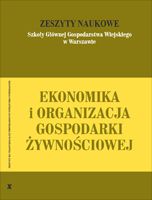Financial and Non-financial Forms of Environment Protection Supporting
Main Article Content
Abstract
The paper highlights financial and other aspects of environment protection supporting with special focus on Poland's experience. In the European Union it was with the Single European Act, that the environment found its place in the Treaty. The Maastricht Treaty clearly states that the environment becomes community policy. The main principles of environmental action include: prevention, correction at source, "polluter pays" principle polluter has to pay expenses incurred through the prevention) and subsidiarity principle (the actions of the EU have to be limited to measures justifying action at Community level). The Treaty stresses the need for combining free-trade objectives with a high level of environmental protection. It is thus accepted that natural resources constitute the basis and the limits of economic development. The environment is one of the fundamental axes of relations between the EU and the countries of Central and Eastern Europe (CEECs). Some of these countries which are candidates for accession (including Poland) will have to adopt environmental Acquis. In the environmental field, Poland has made some progress since 1989 but major investments are needed. Several types of financial instruments have been specifically created for the implementation of ecological projects. The main sources of their financing cover ecological funds, foundations, commercial banks, leasing institutions and investment funds. Environmental protection has formed an integral part of the PHARE programme of assistance in the economic reform of the CEECs since its launch in 1990. Funds' allocation makes it possible to provide capital for training operations; projects combining environmental protection and rural development; measures accompanying the agricultural policy (ex. introducing organic farming). They also encourage setting up rural development network (promoting waste management, watercourse management, development of renewable energy sources, creation of water distribution networks, development of renewable energy sources, etc.).
Article Details
How to Cite
Zawojska, A., & Siudek, T. (2000). Financial and Non-financial Forms of Environment Protection Supporting. Zeszyty Naukowe SGGW - Ekonomika I Organizacja Gospodarki Żywnościowej, (38), 33–55. https://doi.org/10.22630/EIOGZ.2000.38.3
References
European Commission, Directorate for Agriculture, 1998: Agricultural Situation and Prospects in the Central and Eastern Europe. Poland.
MOŚZNiL: Rynek finansowy ochrony środowiska, http://gate.mos.gov.pl.
SIUDEK T., ŚLEDŹ A., 1999: Pozostałe linie kredytowe dla wsi i rolnictwa. [w:] Wieś Jutra, nr 2(7).
SZACKI J.,1998: Lokalna polityka ochrony środowiska w perspektywie integracji z Unią Europejską, http://www.ikz.edu.pl.
SZWED T. Finansowanie gminnych inwestycji w gospodarce odpadami. Materiały z seminarium „Proekologiczna gospodarka odpadami" http://free.ngo.pl.
The European Commission, 1998: Enlargement 98. Commission Report. Poland.
Statistics
Downloads
Download data is not yet available.
Recommend Articles
Most read articles by the same author(s)
- Włodzimierz Stulgis, Aldona Zawojska, Fiscal aspects of agricultural policy , Zeszyty Naukowe SGGW - Ekonomika i Organizacja Gospodarki Żywnościowej: No. 1 (1995)
- Tomasz Siudek, Impact of Credits on Financial Results of Co-operative Banks in Poland , Zeszyty Naukowe SGGW - Ekonomika i Organizacja Gospodarki Żywnościowej: No. 47 (2002)
- Tomasz Siudek, The Bank Guarantee Fund's Role in Ensuring the Security and Stability of the Banking Sector in Poland , Zeszyty Naukowe SGGW - Ekonomika i Organizacja Gospodarki Żywnościowej: No. 55 (2005)
- Aldona Zawojska, Role of the Agricultural Property Agency in Agrarian Structure Changes in Poland , Zeszyty Naukowe SGGW - Ekonomika i Organizacja Gospodarki Żywnościowej: No. 55 (2005)
- Tomasz Siudek, Analysis of Preferential Credits Granted for the Agricultural Sector , Zeszyty Naukowe SGGW - Ekonomika i Organizacja Gospodarki Żywnościowej: No. 31 (1997)
- Tomasz Siudek, An Investigation of Regional Diversity in Economic and Financial Situation of the Cooperative Banks in Poland Using Taxonometric Analysis , Zeszyty Naukowe SGGW - Ekonomika i Organizacja Gospodarki Żywnościowej: No. 58 (2006)
- Tomasz Siudek, Katarzyna Drabarczyk, ECOLOGICAL DEVELOPMENT OF THE MAZOVIA COUNTIES , Zeszyty Naukowe SGGW - Ekonomika i Organizacja Gospodarki Żywnościowej: No. 120 (2017)
- Tomasz Siudek, Scope of Irregular Credits and Factors Determining Credit Risk in Co-operative Banks , Zeszyty Naukowe SGGW - Ekonomika i Organizacja Gospodarki Żywnościowej: No. 51 (2003)
- Tomasz Siudek, Impact of the level of development of agriculture on the value of given credits for agricultural holdings in Poland , Zeszyty Naukowe SGGW - Ekonomika i Organizacja Gospodarki Żywnościowej: No. 69 (2008)





